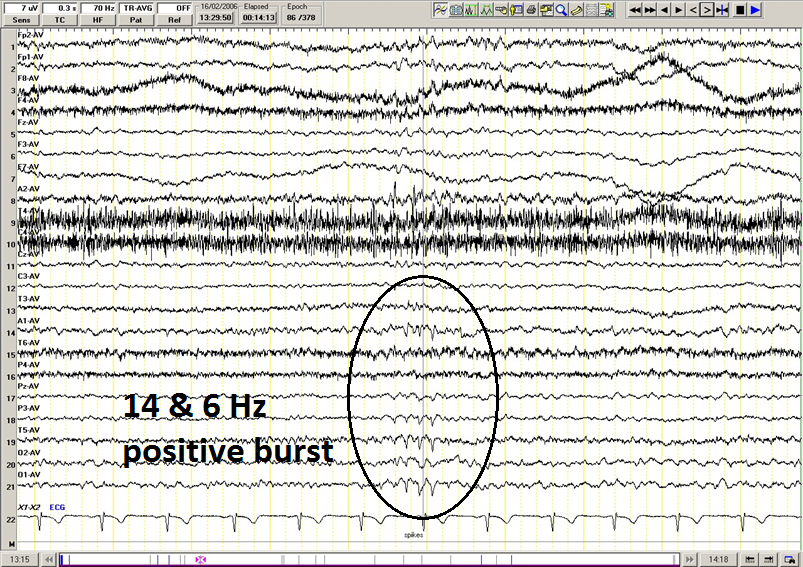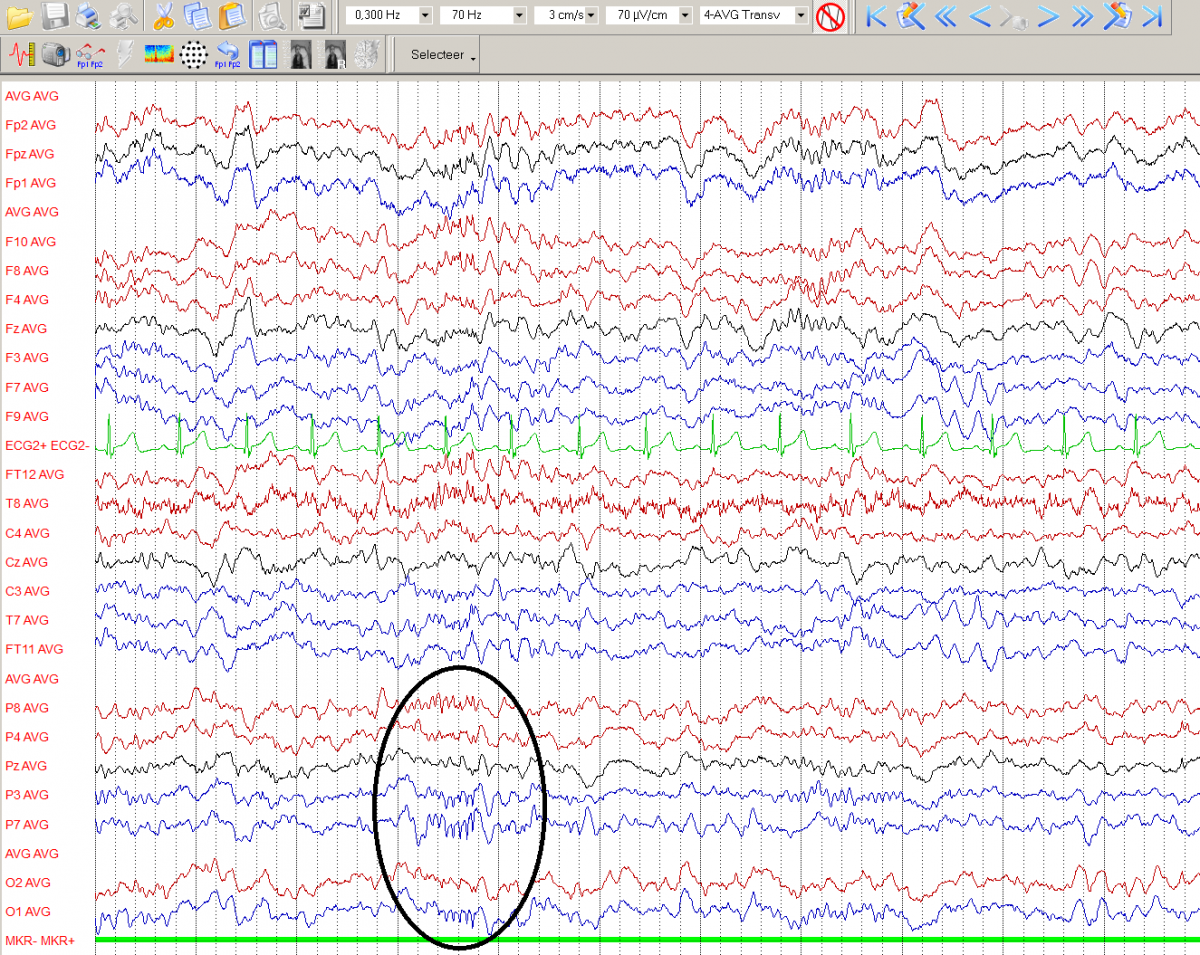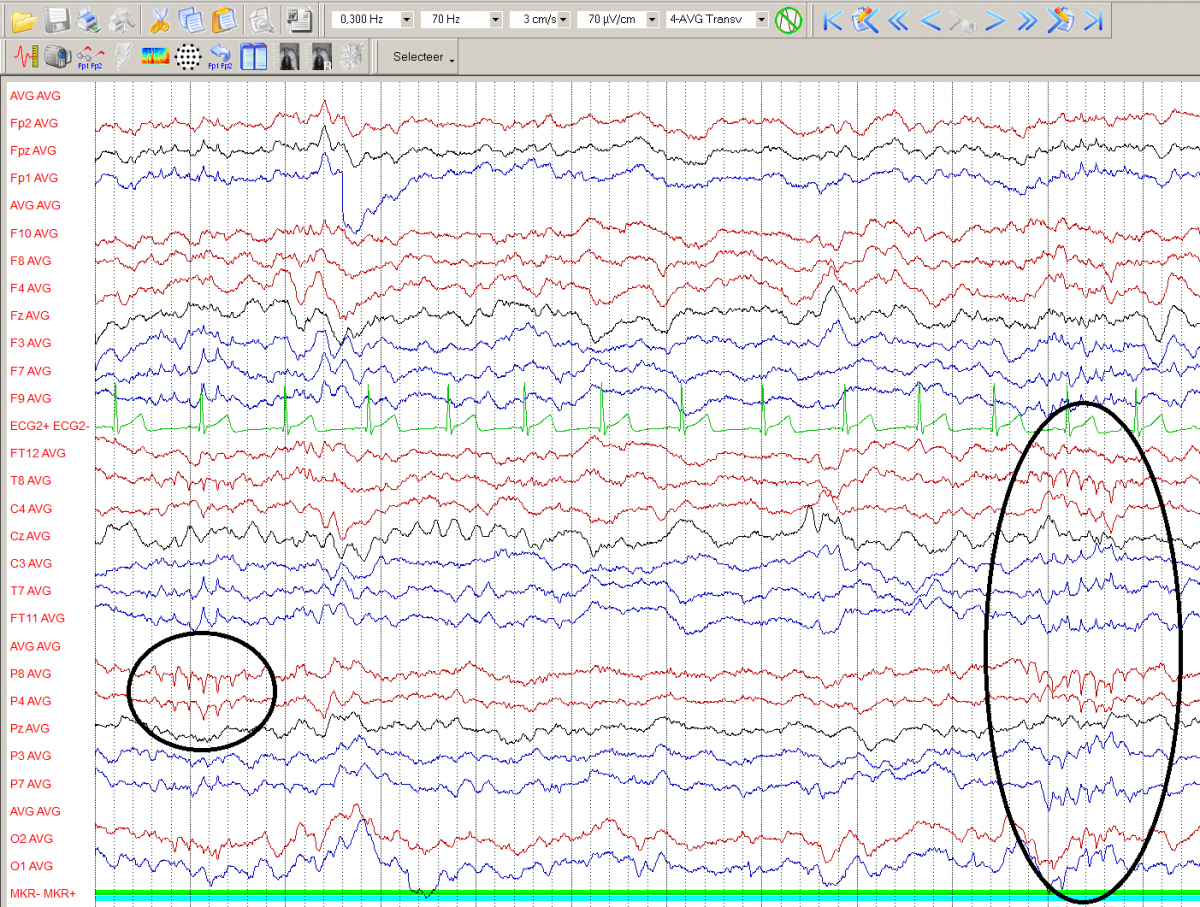Difference between revisions of "14 & 6 Hz positive bursts"
From EEGpedia
| (4 intermediate revisions by the same user not shown) | |||
| Line 16: | Line 16: | ||
---- | ---- | ||
'''''6 Hz positive burst of 0.5 second, bilateral (average)''''' | '''''6 Hz positive burst of 0.5 second, bilateral (average)''''' | ||
| − | |||
| − | |||
| + | [[File: 14_%26_6_Hz_positive_bursts_(average).png|border|1200px|caption]] | ||
| + | |||
| + | |||
| + | ---- | ||
'''''14 Hz positive burst in a 7 years old girl during NREM 1 sleep (average)''''' | '''''14 Hz positive burst in a 7 years old girl during NREM 1 sleep (average)''''' | ||
| − | [[File: | + | |
| + | [[File:14_Hz_positive_burst_in_a_7_years_old_girl_during_NREM_1_sleep.png|border|1200px|caption]] | ||
| + | |||
| + | |||
---- | ---- | ||
| + | |||
| + | '''''6 Hz positive burst in a 6 years old boy (average)''''' | ||
| + | |||
| + | [[File:6_Hz_positive_burst_in_a_6_years_old_boy_EEGpedia.png|border|1200px|caption]] | ||
Latest revision as of 16:20, 28 June 2018
14 & 6 Hz positive bursts
Synonymes: ctenoids
- Bursts of 14Hz (13-17) or 6Hz (5-7)
- Duration: 0.5-1 second
- Unilateral (R>L) or bilateral asynchronous or synchronous
- Arch-shaped waves / Positive sharp peaks
- Maximum in posterior temporal region
- Present in drowsiness and light sleep
- Young adults
- Not associated with epilepsy
6 Hz positive burst of 0.5 second, bilateral (average)
14 Hz positive burst in a 7 years old girl during NREM 1 sleep (average)
6 Hz positive burst in a 6 years old boy (average)


